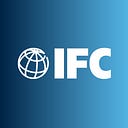From opportunity to implementation: The private sector’s role towards achieving national climate targets
By Aditi Maheshwari
It’s been nearly three years since governments committed to address climate change and limit the rise in global temperatures to well below 2 degrees Celsius under the Paris Agreement. To achieve this goal, 196 countries have formulated and submitted targets and plans to encourage climate-smart growth, also referred to as Nationally Determined Contributions (NDCs).
Despite some progress in advancing these plans toward implementation, many countries have experienced difficulties navigating the complex climate finance environment and accessing vital information and resources needed to identify viable investments. The good news is that investment opportunities in this space are vast: an IFC report found that emerging market NDCs represent a $23 trillion investment opportunity by 2030. As we move closer to these deadlines, what can be done to continue converting the opportunity presented by NDCs — into investment — particularly by the private sector?
IFC is working to creating markets and scale up private sector climate investment while maximizing development impact. A recent project in Côte d’Ivoire provides an innovative example of how, integrating the interests of the private sector, donors, and governments can help identify shared challenges and solutions that ultimately support the achievement of NDC goals.
An innovative approach in Côte d’Ivoire
Côte d’Ivoire’s NDC pledges to reduce its greenhouse gas emissions by 28 percent, in part by achieving 42 percent renewable energy generation by 2030. In addition to strong NDC goals, Côte d’Ivoire has significant existing hydropower assets (879 MW), supporting policies and processes, and a network of interested stakeholders. This combination of ambition and a solid foundation positions Côte d’Ivoire’s renewable energy sector as ripe for the integration of new and innovative technologies and business models.
Recognizing this potential, Côte d’Ivoire took its target of 42 percent renewable energy generation and agreed for it to be analyzed by IFC based on private sector needs. IFC found that Côte d’Ivoire’s renewable energy goal represents a $9 billion investment opportunity. With funding from the World Bank’s NDC Support Facility and the Public Private Infrastructure Advisory Facility, IFC and Côte d’Ivoire developed and released “Unlocking Private Investment: A Roadmap to achieve Côte d’Ivoire’s 42 percent renewable energy target by 2030.” The Roadmap charts a course towards unlocking the private sector’s participation in that investment opportunity.
The six-month Roadmapping process led by IFC and the Ivorian Ministry of Petroleum, Energy, and Renewable Energy Development convened over 100 stakeholders in a series of structured solutions-based dialogues. Participants represented relevant government agencies, large and small private sector actors from across the energy ecosystem, banks, development finance institutions, industry associations, and civil society. Through these dialogues, we achieved the three-pronged goal of identifying stakeholders, supporting dialogues where they had often never happened before, and capturing challenges and solutions related to specific renewable energy technologies in a tangible product that can deliver impact and contribute to a new market.
Project developers and private energy companies strongly signaled their interest in the sector; they recognize the business opportunity and are keen to support the government in achieving the national goal of 60 percent electricity access rate by 2020. Participants also identified opportunities for replicating international best practices such as Scaling Solar in the Ivorian context. However, they indicated their need for enhanced clarity on the current and forthcoming regulations, incentives, and supporting mechanisms that allow an investment to provide appropriate risk-adjusted returns. Through the Roadmap’s structured engagement process, private sector participants accessed this information and can use it to underpin their decision-making.
Keeping up momentum
NDCs are meant to be ambitious, but countries require technical assistance and knowledge products to support their implementation. There is no one recipe to apply across countries, but the takeaway from Côte d’Ivoire’s renewable energy Roadmap is that NDCs represent a key entry point for stakeholders to collaborate towards a specific goal. Initiatives like the NDC Partnership Support Facility that focus on supporting this type of cooperation are vital in this process.
When working to support NDCs, the bottom line — whether working in Côte d’Ivoire or anywhere else in the world — is the need to identify resource gaps and fill them to achieve actionable investments. These gaps are not merely finance-related; they include information, policies and regulations, and institutional and technical capacity. Replicating this Roadmap approach of identifying investment opportunities that support NDC goals, figuring out market resource gaps, and working to provide this information through innovative approaches that encourage collaboration across stakeholders, particularly the private sector, is an imperative as the world works to make the Paris Agreement a success.
You can find the Roadmap in both English and French here.
Aditi Maheshwari is an Operations Officer in the Climate Business Department at IFC, and the co-author of the Roadmap.
